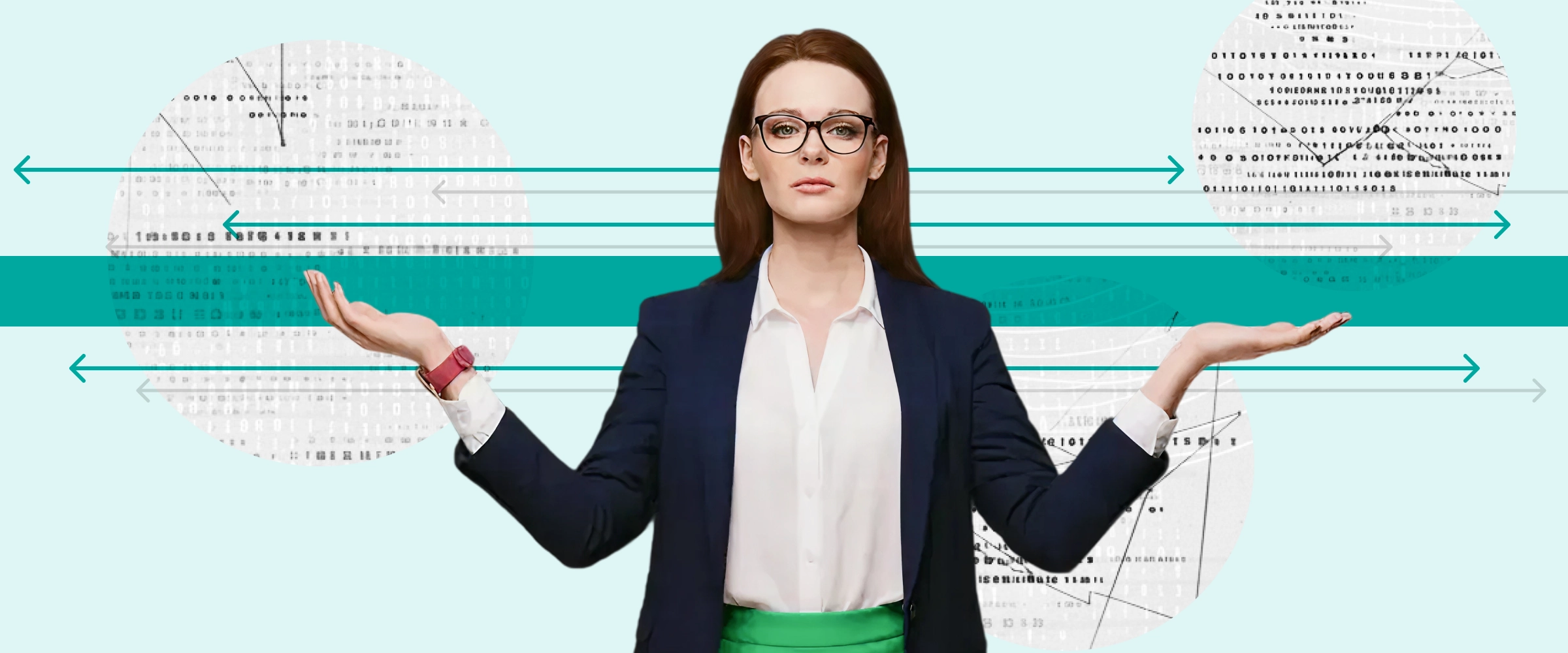⚡️ 1-Minute DISCO Download
Legalweek 2023 was a successful event that provided insightful conversations on a myriad of topics — everything from the mental health of the legal profession to interstellar storytelling advice from LeVar Burton of Reading Rainbow and Star Trek fame — “One of the most important things that we can remember as a storyteller is to not be attached to the outcome of the story. Being attached to the outcome of a story means you’ve already made a decision as to what impact my message will have.”
In this blog, we’ll explore four common themes that popped up across the conference.
Bonus: 3 Key Takeaways from Legalweek 2024 💡
1. Generative AI is on everyone’s minds
The words on everyone’s lips? Artificial Intelligence and the future of generative AI in law. Never behind the curve, and very on topic, DISCO unveiled DISCO Cecilia — an ediscovery AI chatbot designed to provide evidence-based answers with citations to documents in the DISCO Ediscovery database. AI had come to Legalweek in a big way and the excitement was palpable.
The other word on everyone’s lips was, of course, ChatGPT and its abilities. But, Jim Wagner, founder and managing principal of Lean Law Labs, was keen to highlight a concern about data privacy, saying, “Just be aware…if you’re using the free version of ChatGPT that they’re going to do exactly what they want to do with your data.”
Jeff Ward, Director of Duke Center on Law & Tech at Duke School of Law, urged lawyers to address the use of generative AI in their engagement letters. Ward noted that this serves the need to maintain clients' trust, which has allowed the legal industry to largely self-regulate.
During one of DISCO’s moderated panels, Fletcher Strong of Wollmuth Maher & Deutsch LLP compared ChatGPT and technology-assisted review (TAR), noting that generative AI is legally in the space that TAR was a decade ago. “I expect to see a lot of development, but we are still in the infant stages of this technology,” said Strong.
The key takeaway on this topic? A rallying cry to all lawyers, change is coming, so watch this space!
Bonus: DISCO's video library from Legalweek 2022
2. Driving business with client-centricity and technology
The second emerging trend is creating a client-centric approach that leverages technology to drive growth.
Nick Pryor, Director of Knowledge and Innovation at Freeths LLP, noted the importance of engaging clients as early as possible — building an understanding of their goals and requirements: “It’s about being proactive and being on the front foot…rather than being reactive and on the back foot. It comes down to trust and the belief that it’s a sincere attempt to find better outcomes.” Zviad Guruli, Director, eDiscovery and Data Analytics at WilmerHale, echoed Pryor, noting that conversations around goals and processes must occur before a matter starts.
For firms that wanted to improve their engagement, the speakers recommended leveraging technology to add value and systemize success: “The key is whatever you’re solving, you need to look at the holistic picture,” said Guruli, “If services are delivered piecemeal, that’s not delivering value to the client. You need to deliver an entire ecosystem and solution.”
Advice from panelists varied on how to improve client retention and satisfaction — from offering a “scorecard” to clients to fill out after each matter to a post-mortem analysis of cases to demonstrate how the firm drove value and outcomes. However, panelists made it clear that to succeed, firms needed to create trust in the delivery of their services through listening and outcome-based advice.
“Play a long game,” said Pryor as he recounted an example where his firm sacrificed billable work to help a client achieve a settlement. “Over-serving them at the outset at the expense of fees…has directly tied back to them [engaging] us many times.”
The key takeaway when it comes to being client-centric was, at its heart, the advice we often hear from relatives and loved ones — listen more!
3. Change management remains a significant hurdle to realizing value from technology
Transforming how legal teams work is essential, but driving change in a way that positively impacts revenue and client satisfaction can be challenging. Almost every session on technology included discussions on implementation and adoption. As Pryor succinctly stated, “It’s not innovation unless it drives revenue, and it’s not going to drive revenue unless there is adoption.”
Though advice from panelists varied — from bringing in stakeholders and clients to build bespoke technology to hiring consultants to help drive adoption — it’s clear that simply purchasing software will not necessarily solve the desired business problem.
Wendy Butler Curtis, Chief Innovation Officer at Orrick, Herrington & Sutcliffe, says combining a data-driven approach with empathy has been vital in achieving Orrick’s strategic objectives. Guruli echoed Curtis’ comments, noting that adoption efforts are likely to fail if you’re trying to make changes without considering the firm's culture. And, like Curtis, he leans on empathy, often getting attorneys on board with change by noting that they can get home earlier or finish a task faster if they adopt the proposed change.
Kimberly Bell, Director, Technology & Innovation at American Express, noted that bringing in experts in software and implementation when making a substantial change can be the difference between night and day. Fellow panelist Matt Sunderman, CEO of HBR Consulting, agreed, particularly when it comes to managing the expectations of key stakeholders: “Oftentimes, there's a champion of the project that's really frustrated and wants it to change fast, and I always try to remind them that the existing processes weren't done intentionally…there's people on the other side.”
The key takeaway here was to humanize change — understand and, once again, listen to the people who’ll be affected — who’ll use the technology — before forcing change upon them.
4. Data security and privacy continue to plague legal teams
With an increasingly complex web of global privacy laws and the diversifying data universe, data preservation and compliance efforts remained a headache for legal practitioners.
In a panel providing an update on privacy laws and regulations, Danielle Manner, Chief Privacy Officer at Gilead Sciences, reviewed pending legislation, newly passed bills, and recently implemented regulations from California, Iowa, Utah, Virginia, and more — highlighting the patchwork schemes governing US privacy and data protection. In particular, she called out that the FTC and California’s recent regulations (CPRA) seek to discourage dark pattern UI or UX that might trick consumers into granting consent to collect data. At the same time, there is ongoing confusion over the scope of authority between the FTC and HHS regarding who should enforce privacy regulations for health data.
Companies must also be careful to balance their obligation to preserve data and the rights of their users and employees. In a panel on the intersection of discovery and privacy, panelists focused on how blanket preservation or overbroad collection during discovery is inefficient and risky. Such practices open the door to cybersecurity risks and possible sanctions under global data privacy schemes. Susana Medeiros of Norton Rose Fulbright emphasized, “What doesn’t exist can’t be stolen.” The panel recommended creating sensitivity filters, in-place discovery efforts, and doing as much as possible to minimize what data gets sent outside the organization to reduce the risk of a data breach or running afoul of data protection regulations.
The key takeaway was the recommendation to continue to be vigilant and to use technology to manage data effectively and transparently.
Law Better
The major topics of Legalweek 2023 provided an exciting look at how the legal world has changed not only in the last year but even just in the last few months.
Interested in finding out how technology can help you do law justice? Meet Lady J, DISCO’s newest ally in bringing modern solutions to the legal profession.










